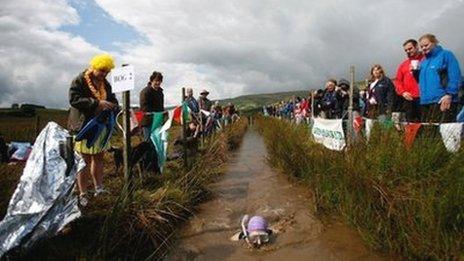Women in sport: Finding roller derby changed my life
- Published
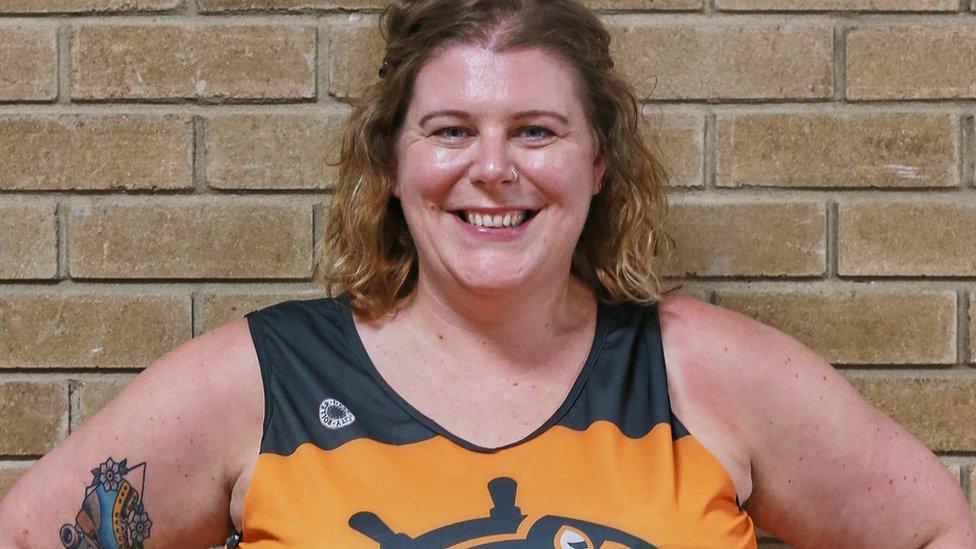
Laura Morgan says she went from not exercising at all, to feeling "fierce and strong" through roller derby
From lack of confidence to fear of injury, some women can struggle to join sports.
A Sport Wales survey in August, external found men were more likely than women to view regular exercise as important, and have the confidence to be physically active.
But why? And what can lesser known sports do to help break down barriers?
One roller derby player said the exciting sport piqued her interest, and changed her life.
Laura Morgan, of Tiger Bay Brawlers women's roller derby club in Cardiff - a full-contact sport played on roller skates - said she fell in love with the sport after being invited by a colleague to watch a game about a decade ago.
"I'd never exercised really, [but] I started getting involved in getting myself a bit fitter after that," she said.
The 36-year-old from Newport said confidence was the biggest barrier to activities for many women.
"A lot of our skaters, when they come to us, can't imagine being in a sport they see as fierce and strong."
Liz Ayres, 32, works at Boulders climbing centre in Cardiff, and only started climbing herself after taking the job.
"You don't have to feel ashamed or embarrassed that you don't have confidence, it takes a lot of courage to just walk through the door of a climbing centre," she said.

Liz Ayres says getting through the door of a climbing centre can be the biggest hurdle for some women to overcome
Meanwhile Alix Lancaster, women's coach at Rhondda Dragons dodgeball club in Pontypridd, said being at the forefront of setting up a lesser known sports club can help women's confidence struggles.
"Not only are they removing the barriers for other women because it's a woman who pioneered that club, there aren't barriers in place because the men don't come in and bulldoze," she said.
Shanti Bihet, the dodgeball team's youngest female player, added: "At the start, I wouldn't really talk and I'd be scared to throw a ball. Now I'll just pelt it at them and try really hard."
The 17-year-old said social stigma originally put her off.
"When I did sport in school, there was a negative side of it. I would get bullied or people would question why I was doing sport," she said.
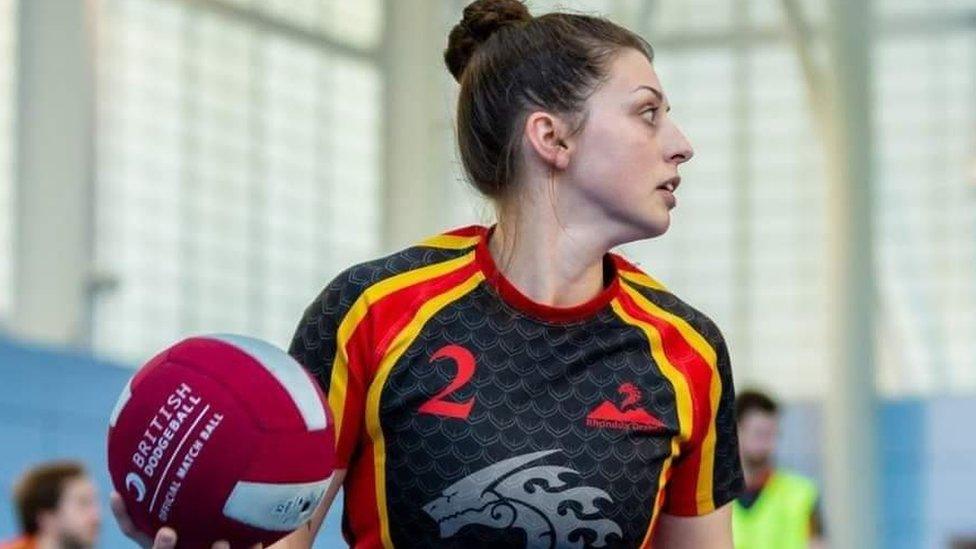
Alix Lancaster hopes women taking the lead on bringing new sports to their communities will stop men "bulldozing"
Hannah Bayfield, who also plays for Tiger Bay Brawlers, said there was a lot more general understanding when it came to men playing sports, as opposed to women, adding: "It also comes down to visibility. If you don't see women doing that kind of thing, why would you feel you can?"
Laura said the club struggled to find suitable places to train and play, adding: "We're one of the best teams in the UK, we're 13th in Europe. That sort of thing should be getting praised, and we can't get the coverage.
"There are baby steps being taken, but it's not enough."
Liz said representation was also key to drawing women to climbing, with climbing centres becoming increasingly inclusive.
"Outgoing, friendly women wearing the Boulders uniform can go a long way.
"There used to be a trend about climbing where you had to be strong, muscly, not wearing a shirt, swinging around like Tarzan. That's long in the past now."
Alix, 27, said she felt privileged to have grown up with sport, but added "women typically are not brought up to throw balls".
"I think men maybe stick at it more," she said.
"Whereas if a woman turns up and doesn't think she's very good, if you don't get in with that woman and encourage her, they just don't come back."
Shanti added: "Without role models, I don't think I'd have had the confidence to join or to stay."
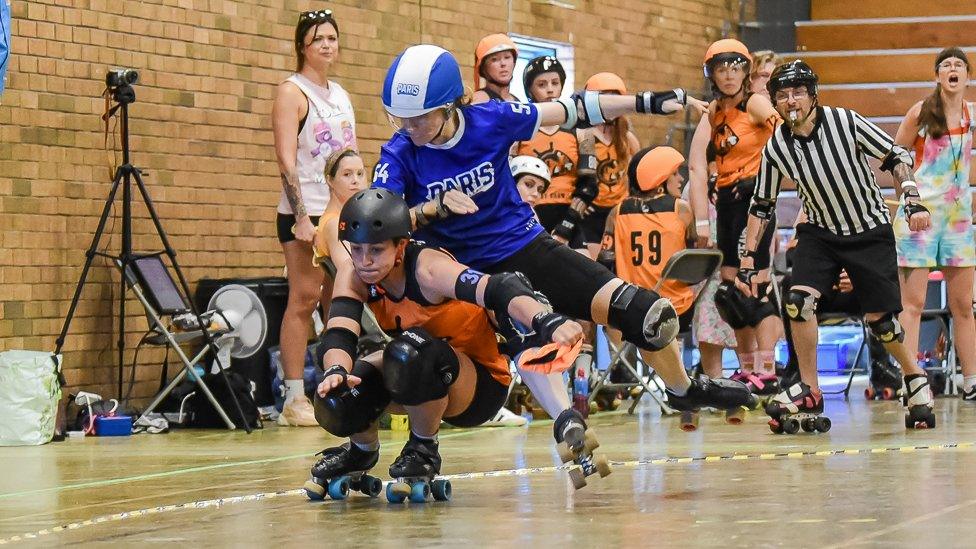
Tiger Bay Brawlers are one of the UK's best roller derby teams, but have to fight for space to train and play
Possibility of injury and perception of risk can also be a barrier, the athletes said.
Laura, who previously broke her wrist playing roller derby, said a fellow player had to quit due to the risk of injury.
"She is a single mother of an autistic child with older parents - she knows if she breaks an ankle or a wrist she won't be able to complete her caring responsibilities.
"In work, if a guy who plays football comes in with a broken foot it's 'what a shame', but if I come in in a cast it's 'oh, you shouldn't be playing that dangerous sport'."
Liz added women have traditionally been pushed towards more sedentary hobbies.
"I think society tells us women are too dainty and precious for rough-and-tumble activities," she said.
"From a young age boys are taught to fall over, scrape a knee, carry on."
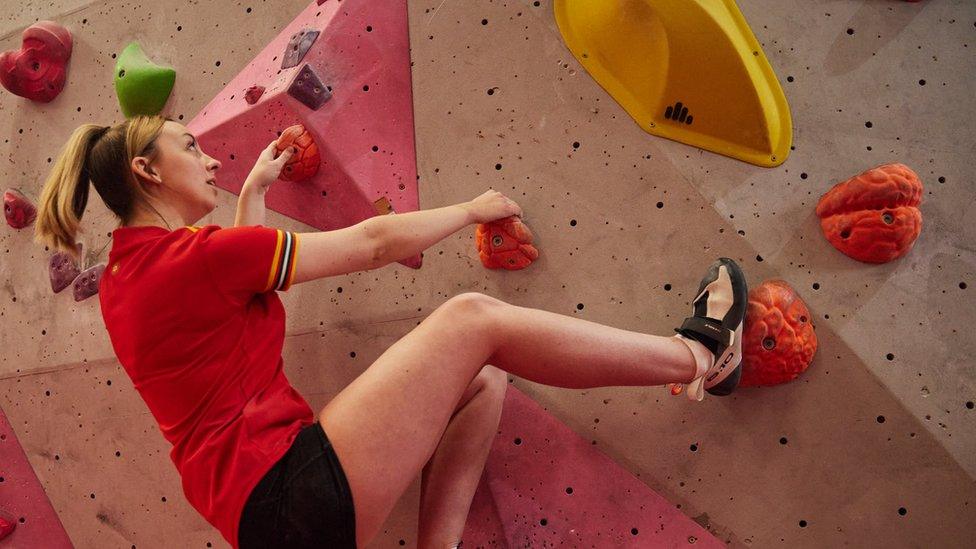
Climbing centres are beginning to move away from the sport's previous largely masculine persona
Alix acknowledged dodgeball could be daunting for some women.
"Some men throw balls at 60mph, some women throw balls at 50mph and it's quite scary," she said.
But despite the risk, the feeling of community gained from smaller sports is an advantage in recruiting women.
"When I came back home after university I found that I didn't really have many friends," said Laura.
"All I was doing was working, going home, working, going home and my life was pretty miserable and boring."
Liz added climbing was "really a community".
"That's why I am still here 10 years later," she said.
"I think women need that group," added Alix.
"Moving to somewhere where you don't have many friends, it's a nice way to build friendships."
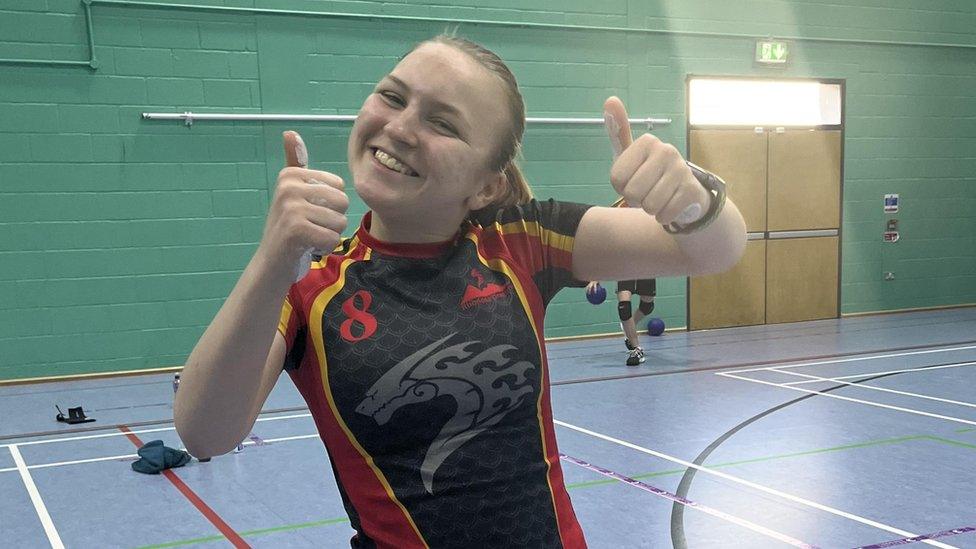
Shanti Bihet says she wouldn't have had the confidence to stick with dodgeball if it wasn't for the warm welcome she received from other women
Shanti added: "Because dodgeball is a smaller sport, compared to football and stuff, there's less stigma and negativity about women joining a team."
Hannah agreed a big benefit of lesser-known sports was that they do not seem as "impenetrable" for newcomers.
The 38-year-old said: "It has that high-octane [quality] that makes it intriguing.
"But I think primarily it's about that diversity. I feel much more comfortable in a space that is that open and inclusive."
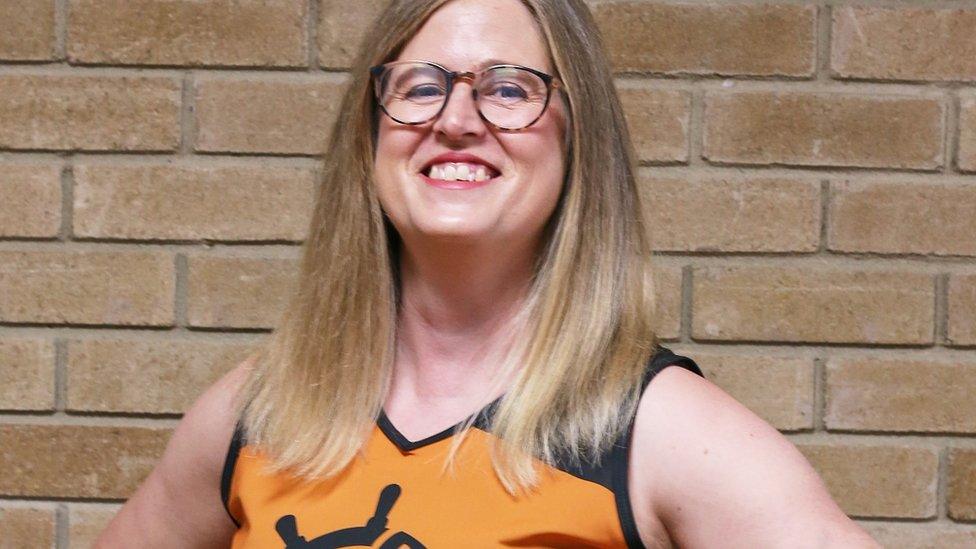
Hannah Bayfield says joining roller derby has completely changed her life
While all five women recognised the physical benefits, they were unanimous in their praise for the mental health aspects too.
Hannah continued: "Doing something that enables you to realise that you can be strong has had such a knock-on effect of being mentally strong.
"However nervous you might be about giving something a go, it's so worth it.
"The worst that happens is that you don't really get along with it, and the best is that ten years later it's completely changed your life."

TRAIN, COMPETE, SLEEP AND REPEAT: Welcome to the world of competitive ballroom dancing
INVISIBLE DISABILITIES: Spreading awareness and helping others

Related topics
- Published10 February 2023
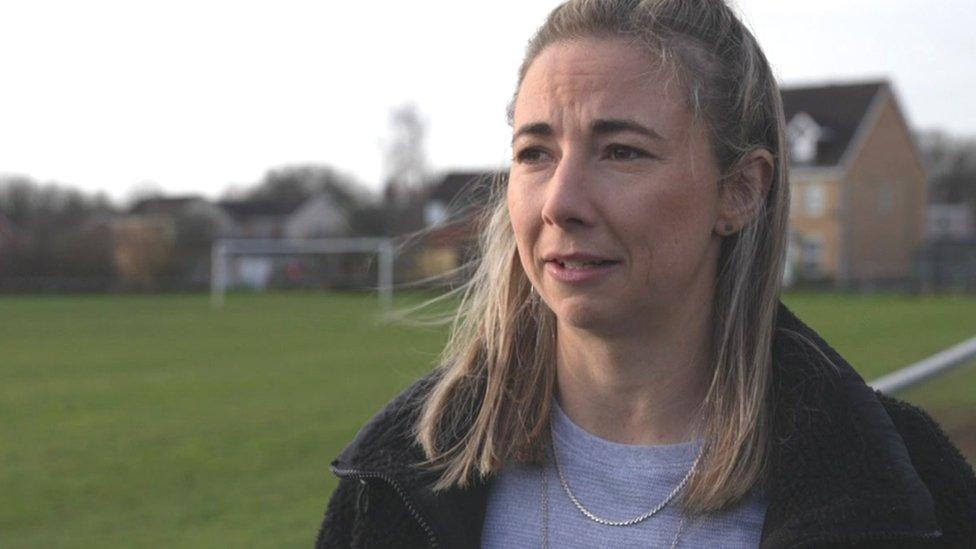
- Attribution
- Published29 March 2021
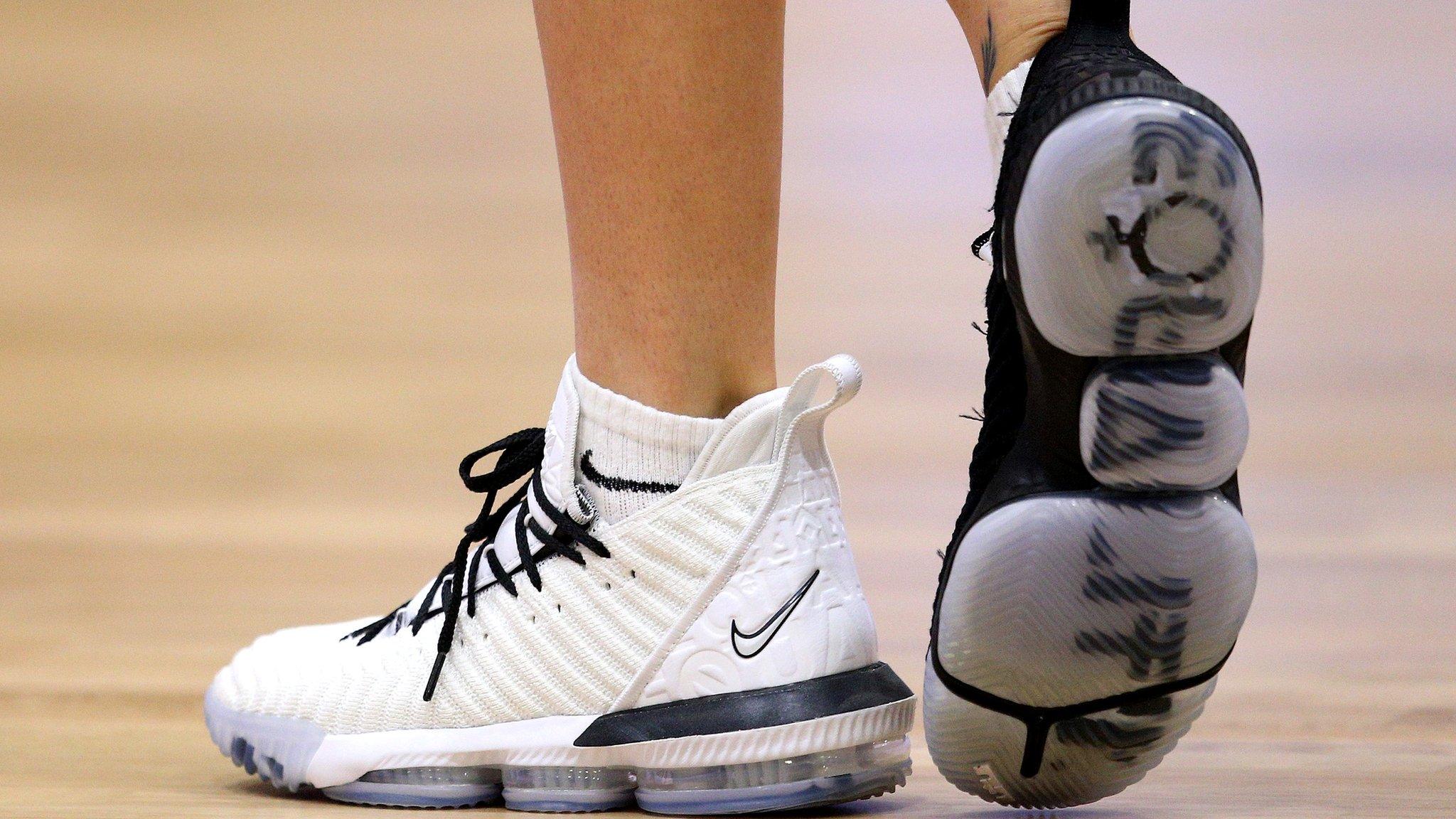
- Published18 August 2012
